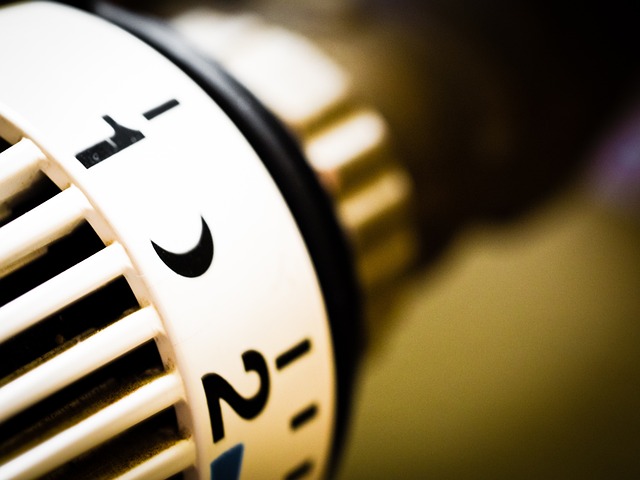Last updated on February 27th, 2024 at 04:40 pm
From the initial inspection to the final safety checks, we’ll guide you through the essential steps that keep your boiler in top-notch condition. Understanding what happens during a boiler service call and it’s importance can save us from needing future boiler repair and cold nights. So, let’s dive into the world of boiler servicing and discover what professionals do to maintain our home’s warmth.
1) Initial Boiler Inspection
When you schedule a boiler service, there will be an initial inspection by your chosen boiler company. An expert engineer will start by visually examining the boiler and its components, looking for any signs of wear or damage. It’s essential to detect any issues early on to prevent costly repairs down the line.
During the inspection, they will pay close attention to:
- The integrity of the boiler casing
- Clearances around the equipment
- Condition of the flue, ensuring it’s not obstructed or damaged
- Evidence of leaks from the boiler or the pipework
They will also check control settings and safety devices to ensure they’re operating as intended. Ensuring these aspects are in perfect working order is non-negotiable for safe and efficient boiler operation.
After the visual checks, the pressure relief valve and the high-limit control will be tested, both of which are fundamental for boiler safety. Incorrect pressure levels can be a telltale sign of underlying issues that need immediate attention.
2) Cleaning and Boiler Maintenance
Cleaning and maintenance are critical to ensuring your boiler runs efficiently and safely. When a boiler fitter conducts these tasks during a boiler service, they focus on several core components that are prone to dirt accumulation and wear.
The heat exchanger, a pivotal part of the boiler, can suffer from soot and scale buildup which impedes performance. This element must be meticulously cleaned to restore optimal functionality. Similarly, the burner, fan, and other moving parts are cleared of debris that might hinder operation.
Then the system’s filters will be checked. These are essential for maintaining water quality within the boiler’s interior workings. Over time, these can clog, so are checked and cleaned or replaced as necessary. Moreover, the condensate trap and pipe also receive attention to prevent blockages that could lead to boiler faults or breakdown.
Boiler maintenance also extends to the checking and resealing of joints and pipework to prevent leaks. Your engineer will ensure that no physical connections have degraded, which might cause efficiency losses or hazard issues.
3) Checking Boiler Components
During a boiler service call, each component of your boiler is thoroughly inspected and tested for efficient operation. One of the key areas of focus is the heat exchanger, which is prone to accumulating dirt and debris that can impede functionality. A clean heat exchanger remains vital for transferring heat efficiently and maintaining the performance of the boiler.
A boiler specialist will also scrutinise the ignition system to confirm that your boiler lights correctly with every demand for heat. Faulty ignition systems are not only inefficient but can also be dangerous. The inspection includes verifying the condition of the spark electrode, flame sensor, and ensuring secure electrical connections.
| Component | Checkpoint | Status |
|---|---|---|
| Heat Exchanger | Cleanliness and unobstructed heat transfer | Verified |
| Ignition System | Correct lighting, condition of electrodes | Secure & Working |
| Safety Devices | Functionality and responsiveness | Optimal |
| Controls | Calibration, responsive adjustments to user settings | Accurate |
The safety devices, such as the pressure relief valve and the thermostat, will be tested to confirm they respond correctly to prevent overheating and other potential boiler hazards. It’s crucial these components react promptly to changing conditions within the system.
4) Testing and Safety Checks
During a boiler service, a series of essential tests and safety checks will be performed. Boiler efficiency and safety are top priorities, ensuring your system operates at its best. Therefore a specialist will meticulously assess each boiler component, adhering to rigorous safety standards.
Regular pressure tests are crucial to maintaining the reliability of your boiler. Pressure readings will be examined to confirm they align with the manufacturer’s specifications, ensuring the system can cope with the operational demands. Flue gas analysis is another critical step for gas boilers; it helps us assess the boiler’s efficiency by measuring the concentration of gases like carbon monoxide and ensuring they are within safe limits.
Safety controls are put through a battery of tests as well. These include:
- Thermostat calibration to verify accurate temperature regulation
- High-limit control tests to ensure the boiler does not overheat
- Pressure relief valve checks for proper operation to prevent excess pressure buildup
The pilot light and burners will be scrutinised, ensuring they ignite properly and burn gas cleanly. A misbehaving pilot light or dirty burner can lead to inefficiency and safety hazards.
Conclusion
We’ve walked you through what happens during a boiler service call, and highlighted the importance of routine checks and tests. It’s clear that such maintenance is key to ensuring your boiler’s longevity and peak performance. Trust us, an annual boiler service can save you from the headache of untimely breakdowns and costly repairs.
Fill in Warmable’s simple online form and we can match you with a local boiler engineer, wherever you are living in the UK. We can schedule an on-site visit at a convenient time for you where you will be offered a free service quote.
Frequently Asked Questions About Boiler Service
What is the purpose of testing and safety checks during a boiler service?
Regular testing and safety checks are crucial for maintaining the boiler’s reliability and efficiency. They help in ensuring the boiler operates safely and can prevent unexpected breakdowns while extending its lifespan.
Why are pressure tests and flue gas analysis important?
Pressure tests are essential to ensure the boiler is operating at the correct pressure. Flue gas analysis is conducted to check the composition of gases emitted by the boiler, which is vital for both efficiency and safety.
What kind of safety controls are checked during a boiler service?
Safety controls that are commonly checked include thermostat calibration, high-limit control tests, and pressure relief valve checks, all of which are designed to ensure the boiler operates within safe parameters.
How does checking the pilot light and burners contribute to boiler efficiency?
Inspecting the pilot light and burners is important because any issues with these components can lead to inefficiency and potential safety hazards. Accurate scrutiny can prevent energy wastage and enhance the overall performance of the boiler.


